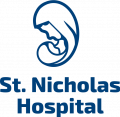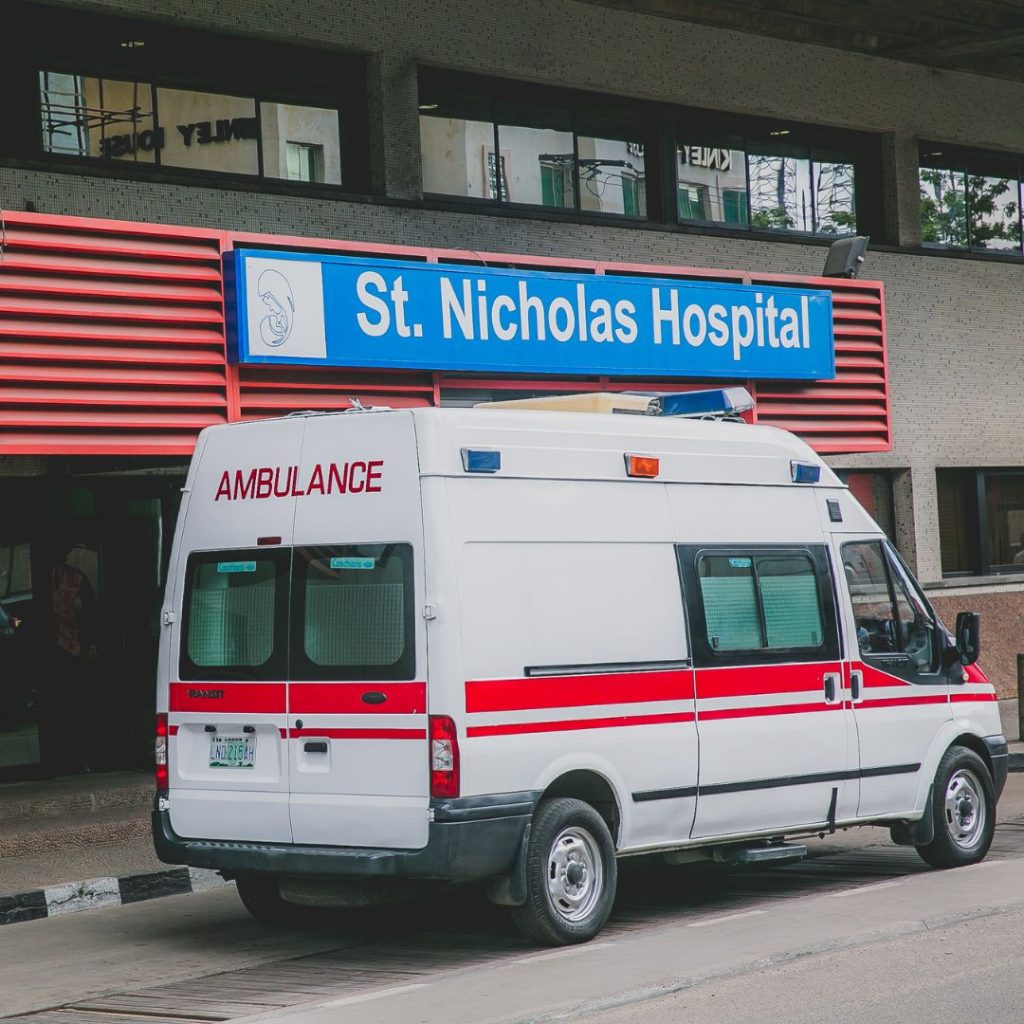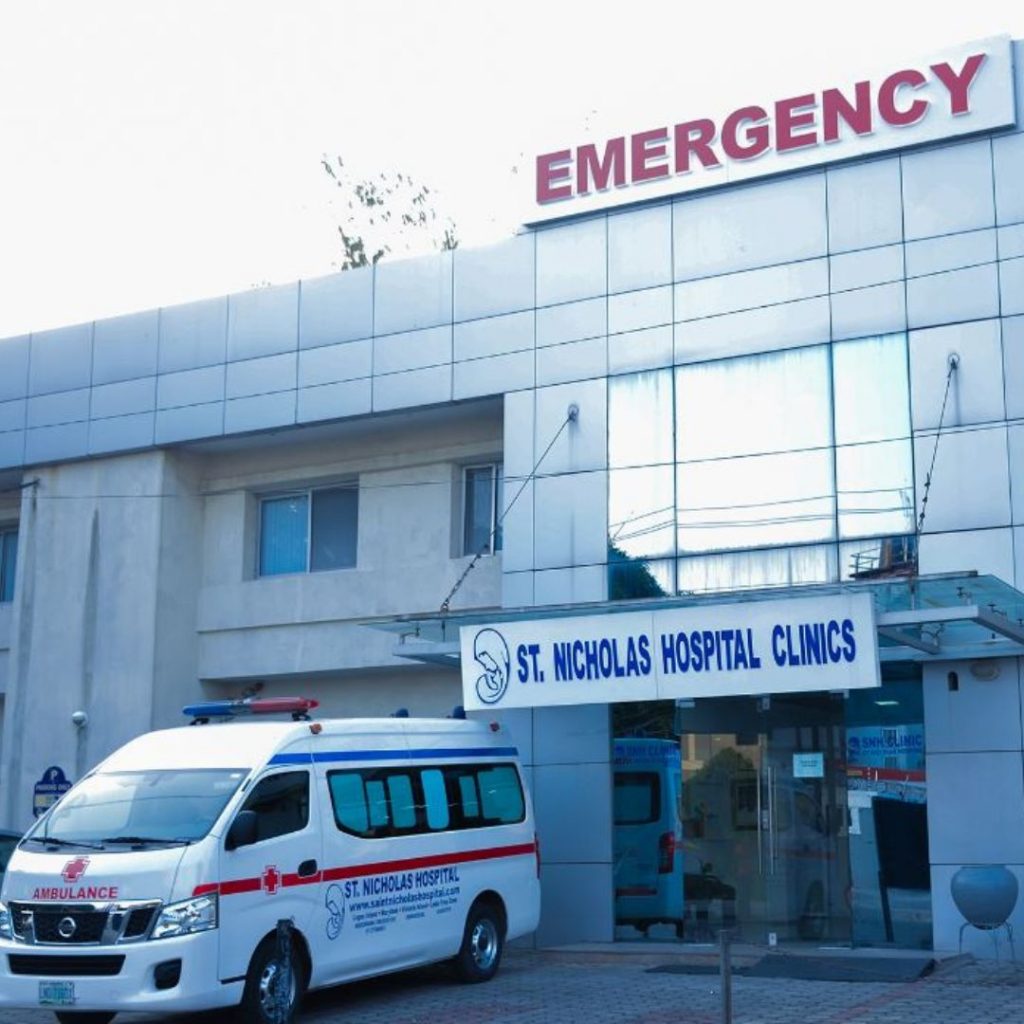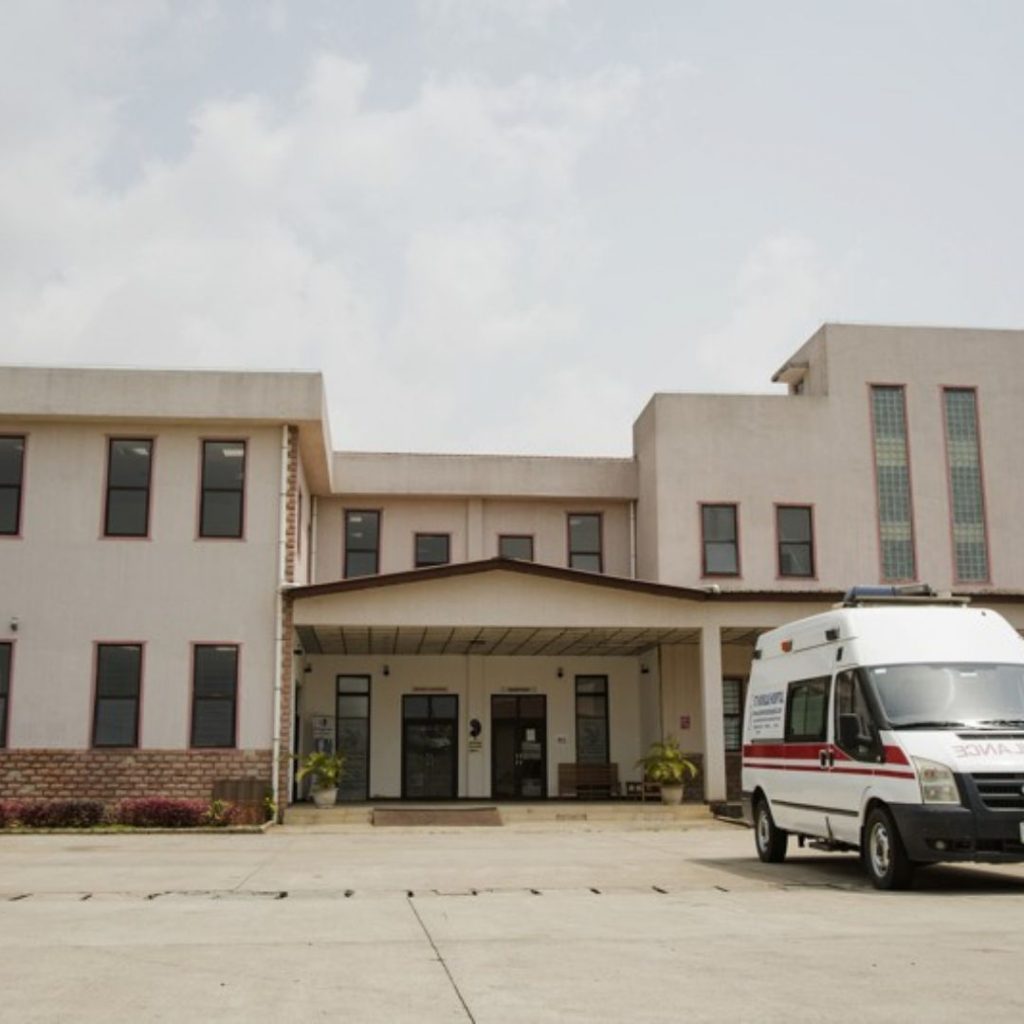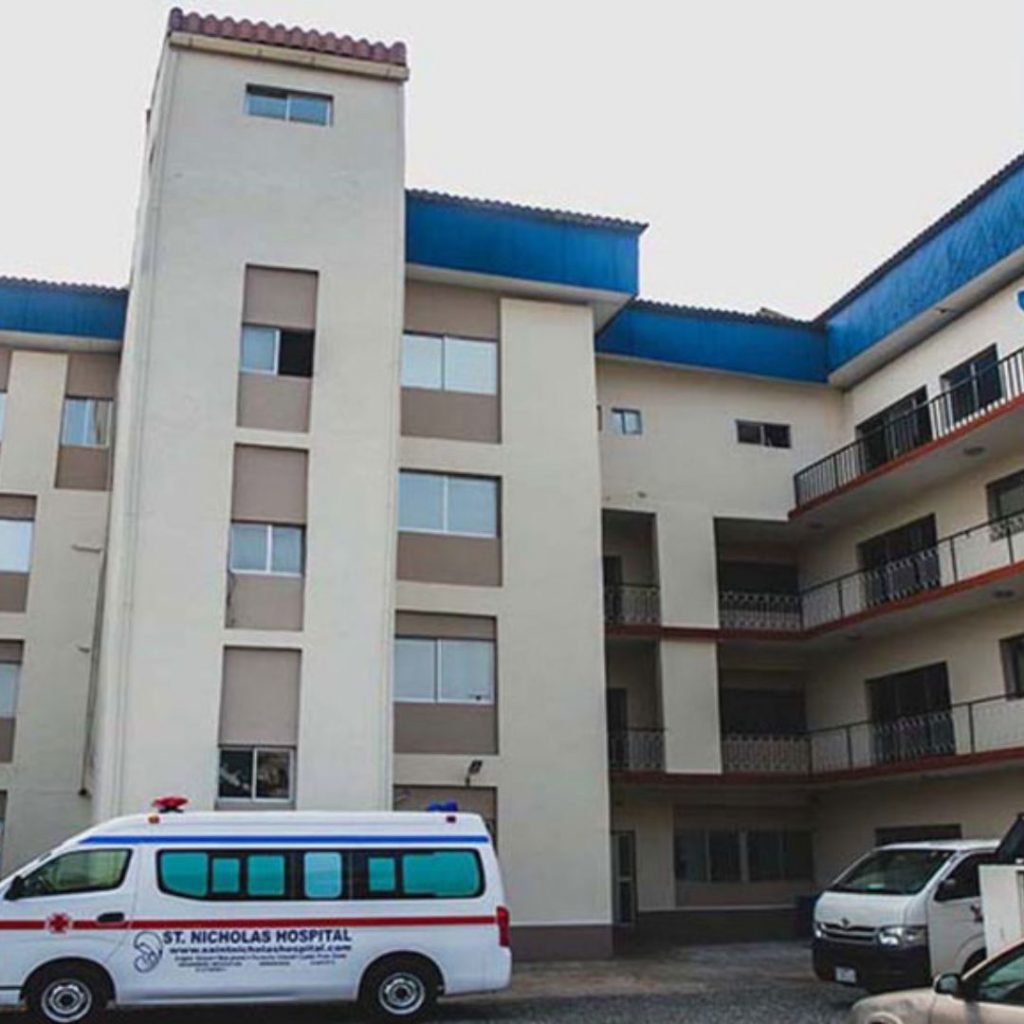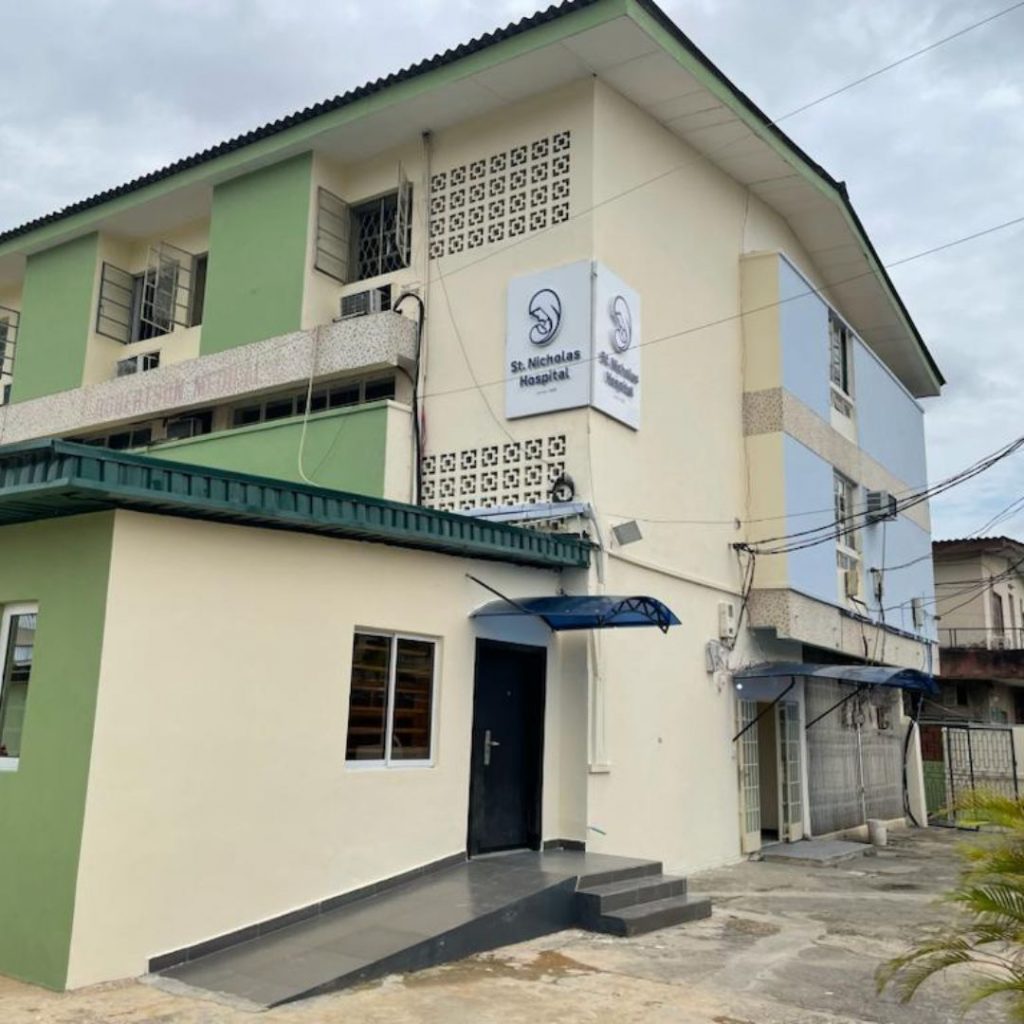We practice a deposit system, if you are self-funding, and we base an estimated amount which is to be paid upfront, on the service care you might receive and the condition you present with on arriving at the hospital.
Registration fee is charged only once as a patient of St. Nicholas Hospital.
You can access outpatient services without being fully registered. Walk-in services include as X-ray, CT scan, Ultrasound scan, Laboratory tests, Vaccinations, Pharmacy and Laboratory services. In some peculiar cases, you might be required to bring along an investigation request note or prescription from your doctor, this is to help guide the medical team provide more accurate report in line with your diagnoses.
Estimated deposit includes room and board (for inpatients), nursing care, consumables, equipment use and any services provided outside by our hospital staff.
Your final bill may be higher or lower than the estimates we use at registration, once we confirm the actual services provided during your visit /stay.
If it is higher, we will ask you and your family for additional payment during your stay and at discharge. If it is lower, we will promptly refund the difference to you.
We will do our best to provide you with a range of what you can be expected to pay based on our hospital’s historical pricing for similar services. Price quotes are not guaranteed since the services used to compute the quote can vary from the services you receive due to treatment decisions, unforeseen complications, additional tests or services ordered by your consultant, and variation in the clinical needs of each patient.
You can pay into St. Nicholas Hospital account through cash, POS channels and online transfers. Kindly call our billing unit on 08022908484 for our bank details.
Please note, when making these payments, write your name and patient number in the reference box for easy identification.
If you have health insurance, by a Health Maintenance Organization or you are being cared for under a company policy, we will ask for their initial approval on whether care should be given and which level of cover you are afforded. You may opt for co-payment so as to have a full amenity room or other incidentals that your insurance might not cover. On discharge, we will bill your respective companies, and ask you to check and sign off the proffered bill as accurate.
The first step toward keeping you safe is consistently confirming your identity. In providing quality medical care will must verify your identity to make sure the right patient is receiving care appropriately. Robust sources of information such as patient’s name, date of birth and wrist tag help reduce the potential for errors. Confirming your identity is a safety precaution.
Nurses ask you about using the bathroom as a way of preventing falls which is another safety precaution. If a nurse is present, he or she can assist you in getting to and from the bathroom. Using the restroom while alone is more risky, including patients who are normally stable on their feet. Certain medications might have a side effect of dizziness, and walking normally after certain procedures can take a while.
Name of drugs can be long and difficult to pronounce right, It is advised you save an updated list of your prescriptions, with dosages, frequencies, side effects, and your reasons for taking them on devices such as phones, diaries, etc. Ensure you carry the list with you, especially when seeing a doctor or another healthcare provider.
While at St. Nicholas Hospital, all rules about personal hygiene apply. Frequent hand washing and dressing changes are important and adhered. Urinary catheter drainage bags should be kept below hip level. Also, if you have relatives who aren’t feeling well, discourage them from visiting you until they are over their illness. If a treatment team member or family member not following good hygiene guidelines, please speak up. Your health and safety definitely comes first.
St. Nicholas Hospital utilizes an Electronic Medical Record (EMR) system called PCS. This system supports your care by providing and recording documentations on treatment plans, order sets, and medications. PCS also facilitates the correct treatment being provided by alerting healthcare providers to your treatment plan for approval where necessary. When staff members are reading or inputting information on the computer, they are ensuring you receive accurate, consistent care rooted in best quality practices.
Isolated persons are typically extremely contagious or infected by a treatment-resistant organism. Patients are isolated to prevent the spread of disease to other people in the medical environment. Isolated person may also be those who are immunosuppressed. Medical personnel visit isolated patients regularly and wear additional protection equipment such as gowns, gloves and masks.
When visiting the hospital, please bring the following items, as appropriate: HMO/Medical insurance card, physician referrals (if required by your health plan), referral-order guidelines/investigations, and Worker’s photo identification card for accuracy and verification purposes.
In order to ensure patient safety during surgery, St. Nicholas Hospital follows the World Health Organization’s “Surgical Safety Checklist.” The checklist applies safeguards at three points during the surgical process; prior to anesthesia, prior to incision, and prior to leaving the operating room. This involves at a minimum a nurse, the anesthetist, and the surgeon. Safeguards include confirming the patient’s identity, marking the surgical site when appropriate, verifying technologies and medications, identifying allergies, counting surgical tools before closure and addressing post-surgical treatment needs. Patients consent are ensured before each procedure.
If you have any queries or concerns about your medications always ask your doctor and pharmacists. St. Nicholas Hospital Pharmacy provides a free Drug Information Centre set aside to give information to the public on drug use, implications and effects. To practice safe medication practice from the beginning of your visit, provide the medical team with an accurate list of your medications and their dosages. Equally important is providing them with feedback on how any new medications make you feel once you begin taking them. Drugs can have different effects on different people, and sometimes adjustments in dosage, frequency, or the medicine itself are required to achieve the best results.
Monday – Friday: 4.00pm – 8.00pm
Weekends / Public Holidays: 2.00pm – 8.00pm
Children under 12 years of age have got immature immunity against hospital-acquired-infections. We strongly advise you, for their safety and protection, that you do not allow children to come and visit you.
For added safety and security, under no circumstance will a visitor be allowed to stay nor sleep on the hospital premises overnight.
For everyone’s comfort and safety, smoking is not allowed anywhere within the hospital premises, including all bedroom and bathroom areas.
Visitors also are not permitted to smoke on site.
We will always try to respect your dignity and privacy, especially for our patients in open wards.
We will make you feel as comfortable as possible while you are here. You are also required to respect the privacy of others on the ward.
To be a strong advocate, you must be knowledgeable about your loved one’s needs and willing to speak up on his or her behalf. At St. Nicholas Hospital, we encourage you to broach sensitive topics and address your questions and concerns with members of our team. Your voice is incredibly important to us.
Your voice is the most important one in the team, therefore feel free to tell anything you think is relevant to your care. They need to know how you’re feeling, and how that changes from day to day. They need to know your medical history, your family’s medical history, your current prescriptions, and any allergies. They need to know how you react to the medications and treatments you receive. Finally, please share your anxieties and concerns, so that they can play a positive role in helping you deal with them.
When you are well enough to leave the hospital, you will be discharged back into the care of your relatives.
